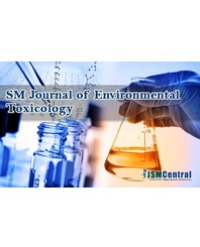
Lipid Profile Alterations and Cardiovascular Risk among Automobile Mechanics Chronically Exposed To Petroleum Products
Objectives : This study assessed the impact of petroleum product exposure on lipid profiles in thirty-eight automobile mechanics compared to fifteen age-matched controls (students aged 20–28 years from the University of Benin). Lipid parameters analyzed included totalcholesterol (T-Chol), triacylglycerols (TAG), high-density lipoprotein (HDL), cholesterol, low-density lipoprotein (LDL), cholesterol, very-lowdensity lipoprotein (VLDL), cholesterol, and phospholipids.
Methods : Blood samples were collected from thirty-eight male automobile mechanics in Benin City as well as 400-level Biochemistry students at the University of Benin following their consent to participate voluntarily. Enzymatic and precipitant methods were employed for lipid quantification. .
Results : Mechanics exhibited significant increases in T-Chol and LDL cholesterol levels (p < 0.05), alongside reductions in HDL cholesterol,
VLDL cholesterol, TAG, and phospholipids, compared to controls. Regression analyses revealed that the length of service was significantly
correlated with total cholesterol (p < 0.05), suggesting a cumulative effect of exposure over time. In contrast, age, weight, and height
showed no significant correlations with lipid parameters.
Conclusion : These findings indicate that prolonged occupational exposure to petroleum products disrupts lipid metabolism, potentially
predisposing workers to cardiovascular diseases. This study underscores the need for regular health monitoring of exposed workers and
implementation of occupational safety measures, including protective equipment and exposure mitigation strategies. Further research
is required to explore the long-term health consequences of these lipid disturbances and their potential progression to cardiovascular
diseases. The results emphasize the critical need for effective public health interventions to safeguard workers in petroleum-related
industries.
Brotoboh Kelvin E1*, Ogunbiyi Oluwagbenga J2, Iyare Harrison E3, and Owoh-Etete Ukamaka2
